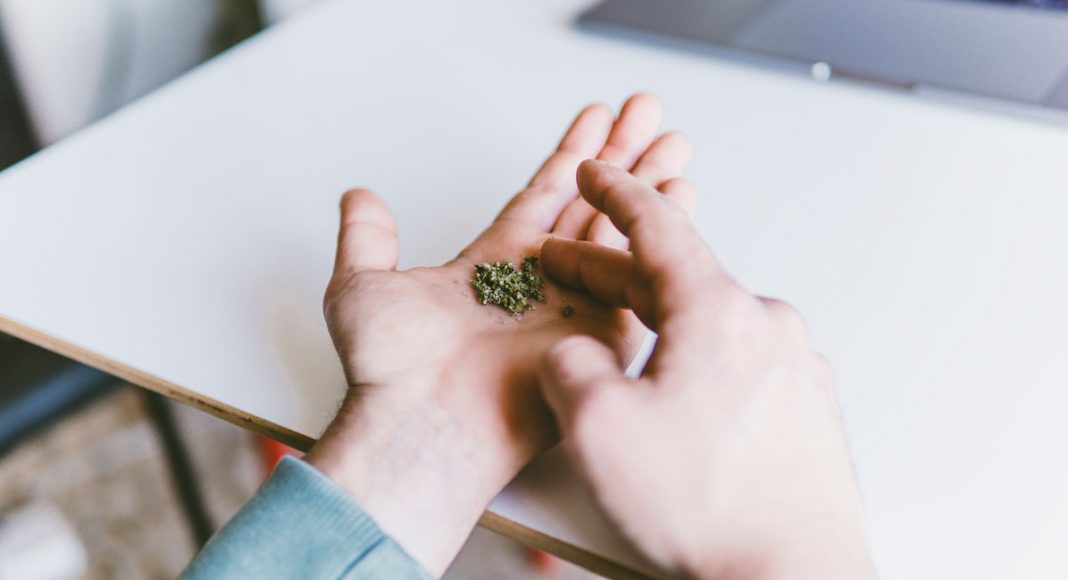Marijuana is a lot of things to a lot of people. For starters, it is often revered as a miracle treatment for a variety of conditions ranging from anxiety to chronic pain. But now that the herb is finding legal status in more parts of the country for recreational use, a term often used to describe weed being used in a manner similar to alcohol, there is some concern that more people will fall susceptible to a condition known as cannabis use disorder, otherwise known as CUD.
You may have never heard of CUD until now. It’s not a new condition or anything. It’s essentially what most people have spent the past few decades referring to as marijuana addiction. The thing about CUD is it’s not nearly as devastating as an addiction to drugs like heroin. In fact, they are entirely different.
Only around 9 percent of people who use marijuana will end up with some kind of dependency issue. There is a similar risk for dependence associated with coffee. Still, in some cases, the situation can become extreme.
“Loss of control over use, compulsivity of use, and harmful consequences of use,” are signs of CUD, Itai Danovitch, chair of the department of psychiatry and behavioral neurosciences at Cedars-Sinai, toldWIRED.
Still, more people use marijuana than they do heroin. Some of the latest statistics show there are around 55 million regular cannabis users in the United States. This means close to 5 million of them could be at risk for CUD. That’s a rate destined to increase as more states (or perhaps the entire country) move to legalize for recreational use. But to reiterate, dependence is not addiction. The country is not on the verge of being plagued by more crime and overdose deaths as a result of legal weed. There has never been a reported case of death by marijuana overdose, and in states where weed has been legal for the past six year there have been reported upticks in evil.
Some reports, however, suggest there is a dark side to cannabis dependence. “Users or former users I spoke with described lost jobs, lost marriages, lost houses, lost money, lost time. Foreclosures and divorces. Weight gain and mental-health problems. And one other thing: the problem of convincing other people that what they were experiencing was real. A few mentioned jokes about Doritos, and comments implying that the real issue was that they were lazy stoners,’” contributing editor Annie Lowrey wrote earlier this year in a piece for The Atlantic.
How can legalization help remedy the situation?
Well, the first thing that is important to point out is nothing is going to be a magic shield to prevent people from harm. There will always be those tragic cases that just cannot help but tread in the downtrodden. But legalizing marijuana in the United States would allow the herb to be regulated just like alcohol and tobacco. More research could take place, which would give the industry new insights on how to encourage responsible use. Some cannabis advocates believe the use of accurate labeling might be the logical first step. The idea is to show users what it means to moderate. “The reasons we demand proper labeling is all because of an awareness that cannabis is a mood-altering substance,” said Paul Armentano, deputy director at NORML. “It possesses some potential level of dependence and it carries potential risk. And we believe prohibition exacerbates those potential risks, while regulation potentially mitigates those risks.”
But don’t be too concerned about CUD. Even if a person is part of the population that is sensitive to this condition, chances are they will be just fine. “Those who quit [using marijuana] generally experience fairly subtle physiological signs of withdrawal—a mildly elevated pulse, irritability and cravings,” said Harvard medical professor J. Wesley Boyd. “These symptoms are much less obvious or powerful than those seen when someone addicted to alcohol, painkillers, or tranquilizers suddenly stops using.”


